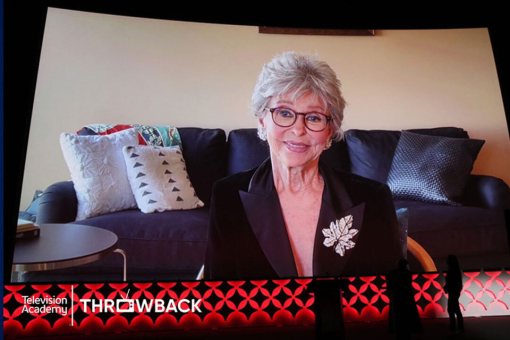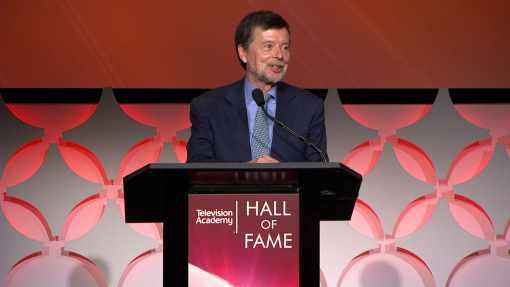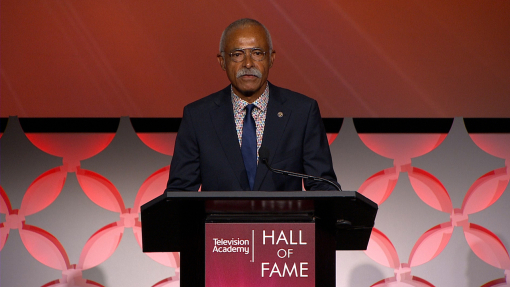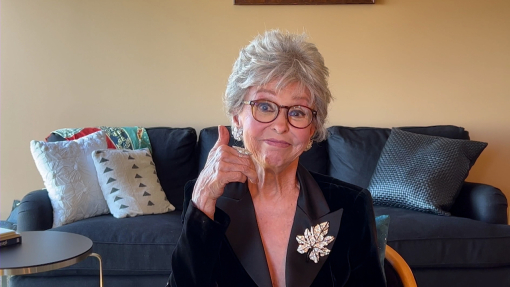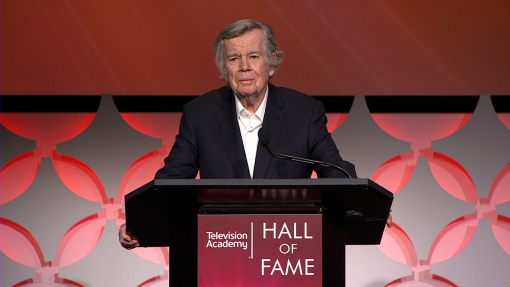“And that’s the way it was.” — Walter Cronkite
For nearly two decades, Walter Cronkite reigned as broadcasting’s most influential journalist, “the stalwart kingpin of CBS News,” according to CBS founder William S. Paley, who also believed that Cronkite came to personify “the highest degree of credibility in the world of journalism.”
Few, if any, have ever argued with Paley’s assessment of the man who rose to national esteem when he assumed the anchorman/managing editor duties on the CBS Evening News on April 16, 1962. Between that date and March 9, 1981, when he stepped down, Cronkite covered virtually every major news event in the world, including the assassination of President John F. Kennedy, the Apollo 11 moon landing, the Vietnam War, the Watergate scandals, the resignation of President Richard M. Nixon, the peace accords between Egypt and Israel, and the election of Ronald Reagan as U.S. president.
During his nearly nineteen years at the helm of the CBS Evening News, he scrupulously maintained the integrity of the network newscast, keeping it free of his opinion and the influence of special interests as he built perhaps the strongest bond of trust and admiration that ever existed between newscaster and viewer. By the time he retired from the evening news, he had been characterized, “if not immortalized,” as Paley saw it, “with the oft-heard line: ‘If Walter says it, it must be so.’ ’’
The son of a dentist, Cronkite was born in Saint Joseph, Missouri, on November 4, 1916. He grew up in the middle-class thickets of Kansas City and Houston, yearned for adventure and a daring career, and entered the University of Texas to study economics and politics. To help pay his college tuition, he worked part-time as a reporter covering the Texas State Legislature. Soon his work at the capitol appealed to him more than his studies in college. In his junior year, he quit the university to become a fulltime general-assignment reporter at the Houston Press.
Later he worked as a sports announcer tor a local radio station in Oklahoma City before joining United Press in 1937.
As a World War II correspondent for UP, Cronkite covered the battle of the North Atlantic in 1942, landed with the invading Allied troops in North Africa, and took part in the D-Day beachhead assaults in Normandy in 1944. After reporting the German surrender, he reestablished UP bureaus in Belgium, Holland, and Luxembourg, covered the Nuremberg trials and, in 1946, was sent to Moscow, where he was chief UP correspondent for two years.
Shortly after his return to the United States, Cronkite, lured by the higher salaries in broadcasting, starred his own syndicated news program in Washington tor a group of Midwestern radio stations before joining CBS as a correspondent in July 1950.
With his move to television, he almost immediately began a swift rise through the network’s news department, moderating a weekly documentary series on the Korean War and, in the process, initiating an unprecedented career as a CBS anchorman on one show or another continuously for 30 years. His status as anchorman began with the Saturday evening news program, Up to the Minute, in 1951 and continued that same year with the 11 p.m. Sunday news, where he remained for more than 11 years, leaving only to take over the CBS Evening News in 1962.
Besides anchoring such special events as political conventions and national elections, he also served as the first moderator (1952-53) of Man of the Week, in which a prominent public figure was interviewed about a news subject of current interest. (The program was the forerunner of CBS’s influential Face the Nation.) From 1953 to 1957, Cronkite narrated the popular documentary drama You Are There, which reported such historical events as the Salem witchcraft trials and the fall of Troy as if they were happening at the moment.
In 1961-62, he anchored Eyewitness to History, a Friday night series that offered in-depth analyses of major current news stories. And for nearly 13 years, he narrated the highly acclaimed series The Twentieth Century, the Sunday evening documentary program that profiled major personalities who influenced modern world history. Telecast from October 1957 to January 1970, that news series premiered with a special hour-long program paying tribute to Sir Winston Churchill.
Cronkite, however, achieved his greatest influence after CBS extended his evening news program from 15 minutes to a half-hour. The new program, the first evening network newscast of that length, premiered September 2, 1963, as the CBS Evening News With Walter Cronkite.
While the new format permitted the reporting of more news, it also constituted a risk by giving Cronkite greater exposure. Yet rather than dulling his appeal, the exposure increased his credibility with the American public. His method of handling the news, particularly on the evening newscast, was always to offer balance and objectivity. In front of the camera, he projected a kind of avuncular coolness, an unflappability that, remarkably, did not obscure the warmth of his personality. The coolness and the warmth, together with the distinctive baritone and the sign-off, “And that’s the way it was,” constituted his trademarks. The trademarks, in turn, served as calling cards welcoming him into the homes of a nightly average audience of 18.5 million.
His famous on-camera reserve was shattered only occasionally throughout his broadcasting career, as on November 22, 1963, when he wept during his announcement that President Kennedy had been assassinated.
“Cronkite’s strength with the American people …,” media observer Martin Mayer wrote in About Television, "rests on the near-universal perception that he is what another culture calls a mensch. When he was removed from the central position before the camera in the CBS coverage of the 1964 Democratic Convention [because Huntley-Brinkley had won the ratings laurel at the Republican Convention], he did not wince or cry aloud, and presently he was back on top, simply because he was the best in the business. He has never been just a man in front of a camera."
In addition to his regular news telecasts, Cronkite’s outstanding reporting on the American space program helped to catapult him to his position as broadcasting’s premier newscaster. After spending literally hundreds of hours studying this program, Cronkite soon came to be regarded as an expert on space, reporting with authority on the first two decades of this country’s manned space missions, including Alan B. Shepard’s first flight in 1961, the Apollo 11 moon landing in 1969, and the experimental flights of the Enterprise space shuttle in July 1977.
Throughout his career with CBS News, Cronkite also has conducted exclusive interviews with most major heads of state, including all U.S. presidents since Harry S Truman. Perhaps the most famous of his interviews took place on November 14, 1977, when, in separate conversations with Cronkite, Egyptian President Anwar el Sadat and Israeli Prime Minister Menachem Begin agreed, for the first time, to a face-to-face meeting with no preconditions. Five days later, Cronkite held another exclusive interview with Sadat aboard the airliner that carried the Egyptian leader on his historic journey to Israel.
After Cronkite relinquished his evening news post to Dan Rather, he remained at CBS as a special correspondent, covering most recently the 1984 political conventions and the June 1984 ceremonies in Normandy marking the 40th anniversary of the D-Day invasion. He also served as anchorman of the CBS science magazine series, Walter Cronkite’s Universe, which was telecast as a summer series from 1980 to 1982. During the same period, he conceived and co-produced the news-education series Why in the World for public television.
Because Cronkite came to the medium in its infancy, and because he remained to help shape its growth, it is impossible to consider electronic journalism today without accounting for his impact on it. As a pioneering journalist who received every award, including numerous Emmys, for his work, Walter Cronkite continues to give television news some of its finest hours.
This tribute originally appeared in the Television Academy Hall of Fame program celebrating Walter Cronkite's induction in 1985.


